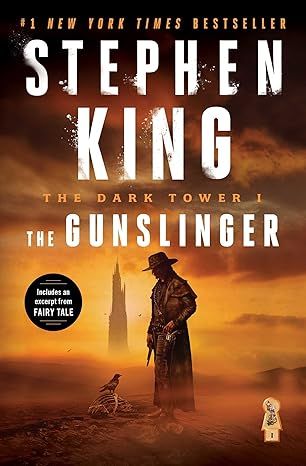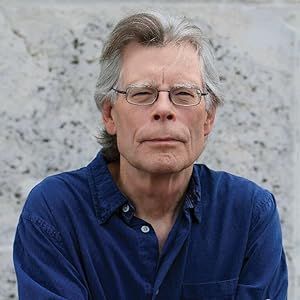The Dark Tower I: The Gunslinger (Dark Tower, The)
4.3
-
31,861 ratings
“An impressive work of mythic magnitude that may turn out to be Stephen King’s greatest literary achievement” (The Atlanta Journal-Constitution), The Gunslinger is the first volume in the epic Dark Tower Series.
A #1 national bestseller, The Gunslinger introduces readers to one of Stephen King’s most powerful creations, Roland of Gilead: The Last Gunslinger. He is a haunting figure, a loner on a spellbinding journey into good and evil. In his desolate world, which mirrors our own in frightening ways, Roland tracks The Man in Black, encounters an enticing woman named Alice, and begins a friendship with the boy from New York named Jake.
Inspired in part by the Robert Browning narrative poem, “Childe Roland to the Dark Tower Came,” The Gunslinger is “a compelling whirlpool of a story that draws one irretrievable to its center” (Milwaukee Sentinel). It is “brilliant and fresh…and will leave you panting for more” (Booklist).
Kindle
$13.99
Available instantly
Audiobook
$0.00
with membership trial
Hardcover
$16.99
Paperback
$9.96
Ships from
Amazon.com
Payment
Secure transaction
ISBN-10
1501143514
ISBN-13
978-1501143519
Print length
304 pages
Language
English
Publisher
Scribner
Publication date
May 02, 2016
Dimensions
5.5 x 0.76 x 8.38 inches
Item weight
9.3 ounces
Popular highlights in this book
Everything in the universe denies nothing; to suggest an ending is the one absurdity.
Highlighted by 2,258 Kindle readers
Yes, three is mystic. Three stands at the heart of your quest. Another number comes later. Now the number is three.
Highlighted by 1,397 Kindle readers
Marten is no more. The man in black has eaten his soul. This you know.
Highlighted by 1,021 Kindle readers
Product details
ASIN :
B018ER7JRC
File size :
14913 KB
Text-to-speech :
Enabled
Screen reader :
Supported
Enhanced typesetting :
Enabled
X-Ray :
Enabled
Word wise :
Enabled
Editorial reviews
"An impressive work of mythic magnitude. May turn out to be Stephen King’s greatest literary achievement." ― Atlanta Journal-Constitution
"A compelling whirlpool of a story that draws one irretrievably to its center." ― Milwaukee Sentinel
"Brilliant, fresh and compelling…will leave you panting for more." ― Booklist
Sample
CHAPTER ONE
The Gunslinger
The man in black fled across the desert, and the gunslinger followed.
The desert was the apotheosis of all deserts, huge, standing to the sky for what looked like eternity in all directions. It was white and blinding and waterless and without feature save for the faint, cloudy haze of the mountains which sketched themselves on the horizon and the devil-grass which brought sweet dreams, nightmares, death. An occasional tombstone sign pointed the way, for once the drifted track that cut its way through the thick crust of alkali had been a highway. Coaches and buckas had followed it. The world had moved on since then. The world had emptied.
The gunslinger had been struck by a momentary dizziness, a kind of yawing sensation that made the entire world seem ephemeral, almost a thing that could be looked through. It passed and, like the world upon whose hide he walked, he moved on. He passed the miles stolidly, not hurrying, not loafing. A hide waterbag was slung around his middle like a bloated sausage. It was almost full. He had progressed through the khef over many years, and had reached perhaps the fifth level. Had he been a Manni holy man, he might not have even been thirsty; he could have watched his own body dehydrate with clinical, detached attention, watering its crevices and dark inner hollows only when his logic told him it must be done. He was not a Manni, however, nor a follower of the Man Jesus, and considered himself in no way holy. He was just an ordinary pilgrim, in other words, and all he could say with real certainty was that he was thirsty. And even so, he had no particular urge to drink. In a vague way, all this pleased him. It was what the country required, it was a thirsty country, and he had in his long life been nothing if not adaptable.
Below the waterbag were his guns, carefully weighted to his hands; a plate had been added to each when they had come to him from his father, who had been lighter and not so tall. The two belts crisscrossed above his crotch. The holsters were oiled too deeply for even this Philistine sun to crack. The stocks of the guns were sandalwood, yellow and finely grained. Rawhide tiedowns held the holsters loosely to his thighs, and they swung a bit with his step; they had rubbed away the bluing of his jeans (and thinned the cloth) in a pair of arcs that looked almost like smiles. The brass casings of the cartridges looped into the gunbelts heliographed in the sun. There were fewer now. The leather made subtle creaking noises.
His shirt, the no-color of rain or dust, was open at the throat, with a rawhide thong dangling loosely in hand-punched eyelets. His hat was gone. So was the horn he had once carried; gone for years, that horn, spilled from the hand of a dying friend, and he missed them both.
He breasted a gently rising dune (although there was no sand here; the desert was hardpan, and even the harsh winds that blew when dark came raised only an aggravating harsh dust like scouring powder) and saw the kicked remains of a tiny campfire on the lee side, the side the sun would quit earliest. Small signs like this, once more affirming the man in black's possible humanity, never failed to please him. His lips stretched in the pitted, flaked remains of his face. The grin was gruesome, painful. He squatted.
His quarry had burned the devil-grass, of course. It was the only thing out here that would burn. It burned with a greasy, flat light, and it burned slow. Border dwellers had told him that devils lived even in the flames. They burned it but would not look into the light. They said the devils hypnotized, beckoned, would eventually draw the one who looked into the fires. And the next man foolish enough to look into the fire might see you.
The burned grass was crisscrossed in the now familiar ideographic pattern, and crumbled to gray senselessness before the gunslinger's prodding hand. There was nothing in the remains but a charred scrap of bacon, which he ate thoughtfully. It had always been this way. The gunslinger had followed the man in black across the desert for two months now, across the endless, screamingly monotonous purgatorial wastes, and had yet to find spoor other than the hygienic sterile ideographs of the man in black's campfires. He had not found a can, a bottle, or a waterbag (the gunslinger had left four of those behind, like dead snakeskins). He hadn't found any dung. He assumed the man in black buried it.
Perhaps the campfires were a message, spelled out one Great Letter at a time. Keep your distance, partner, it might say. Or, The end draweth nigh. Or maybe even, Come and get me. It didn't matter what they said or didn't say. He had no interest in messages, if messages they were. What mattered was that these remains were as cold as all the others. Yet he had gained. He knew he was closer, but did not know how he knew. A kind of smell, perhaps. That didn't matter, either. He would keep going until something changed, and if nothing changed, he would keep going, anyway. There would be water if God willed it, the oldtimers said. Water if God willed it, even in the desert. The gunslinger stood up, brushing his hands.
No other trace; the wind, razor-sharp, had of course filed away even what scant tracks the hardpan might once have held. No man-scat, no cast-off trash, never a sign of where those things might have been buried. Nothing. Only these cold campfires along the ancient highway moving southeast and the relentless range-finder in his own head. Although of course it was more than that; the pull southeast was more than just a sense of direction, was even more than magnetism.
He sat down and allowed himself a short pull from the waterbag. He thought of that momentary dizziness earlier in the day, that sense of being almost untethered from the world, and wondered what it might have meant. Why should that dizziness make him think of his horn and the last of his old friends, both lost so long ago at Jericho Hill? He still had the guns-his father's guns-and surely they were more important than horns ... or even friends.
Weren't they?
The question was oddly troubling, but since there seemed to be no answer but the obvious one, he put it aside, possibly for later consideration. He scanned the desert and then looked up at the sun, which was now sliding into a far quadrant of the sky that was, disturbingly, not quite true west. He got up, removed his threadbare gloves from his belt, and began to pull devil-grass for his own fire, which he laid over the ashes the man in black had left. He found the irony, like his thirst, bitterly appealing.
He did not take the flint and steel from his purse until the remains of the day were only fugitive heat in the ground beneath him and a sardonic orange line on the monochrome horizon. He sat with his gunna drawn across his lap and watched the southeast patiently, looking toward the mountains, not hoping to see the thin straight line of smoke from a new campfire, not expecting to see an orange spark of flame, but watching anyway because watching was a part of it, and had its own bitter satisfaction. You will not see what you do not look for, maggot,
Cort would have said. Open the gobs the gods gave ya, will ya not?
But there was nothing. He was close, but only relatively so. Not close enough to see smoke at dusk, or the orange wink of a campfire.
He laid the flint down the steel rod and struck his spark to the dry, shredded grass, muttering the old and powerful nonsense words as he did: "Spark-a-dark, where's my sire? Will I lay me? Will I stay me? Bless this camp with fire." It was strange how some of childhood's words and ways fell at the wayside and were left behind, while others clamped tight and rode for life, growing the heavier to carry as time passed. He lay down upwind of his little blazon, letting the dreamsmoke blow out toward the waste. The wind, except for occasional gyrating dust-devils, was constant.
Above, the stars were unwinking, also constant. Suns and worlds by the million. Dizzying constellations, cold fire in every primary hue. As he watched, the sky washed from violet to ebony. A meteor etched a brief, spectacular arc below Old Mother and winked out. The fire threw strange shadows as the devil-grass burned its slow way down into new patterns-not ideograms but a straightforward crisscross vaguely frightening in its own no-nonsense surety. He had laid his fuel in a pattern that was not artful but only workable. It spoke of blacks and whites. It spoke of a man who might straighten bad pictures in strange hotel rooms. The fire burned its steady, slow flame, and phantoms danced in its incandescent core. The gunslinger did not see. The two patterns, art and craft, were welded together as he slept. The wind moaned, a witch with cancer in her belly. Every now and then a perverse downdraft would make the smoke whirl and puff toward him and he breathed some of it in. It built dreams in the same way that a small irritant may build a pearl in an oyster. The gunslinger occasionally moaned with the wind. The stars were as indifferent to this as they were to wars, crucifixions, resurrections. This also would have pleased him.
II
He had come down off the last of the foothills leading the mule, whose eyes were already dead and bulging with the heat. He had passed the last town three weeks before, and since then there had only been the deserted coach track and an occasional huddle of border dwellers' sod dwellings. The huddles had degenerated into single dwellings, most inhabited by lepers or madmen. He found the madmen better company. One had given him a stainless steel Silva compass and bade him give it to the Man Jesus. The gunslinger took it gravely. If he saw Him, he would turn over the compass. He did not expect that he would, but anything was possible. Once he saw a taheen-this one a man with a raven's head-but the misbegotten thing fled at his hail, cawing what might have been words. What might even have been curses.
Five days had passed since the last hut, and he had begun to suspect there would be no more when he topped the last eroded hill and saw the familiar low-backed sod roof.
The dweller, a surprisingly young man with a wild shock of strawberry hair that reached almost to his waist, was weeding a scrawny stand of corn with zealous abandon. The mule let out a wheezing grunt and the dweller looked up, glaring blue eyes coming target-center on the gunslinger in a moment. The dweller was unarmed, with no bolt nor bah the gunslinger could see. He raised both hands in curt salute to the stranger and then bent to the corn again, humping up the row next to his hut with back bent, tossing devil-grass and an occasional stunted corn plant over his shoulder. His hair flopped and flew in the wind that now came directly from the desert, with nothing to break it.
The gunslinger came down the hill slowly, leading the donkey on which his waterskins sloshed. He paused by the edge of the lifeless-looking cornpatch, drew a drink from one of his skins to start the saliva, and spat into the arid soil.
"Life for your crop."
"Life for your own," the dweller answered and stood up. His back popped audibly. He surveyed the gunslinger without fear. The little of his face visible between beard and hair seemed unmarked by the rot, and his eyes, while a bit wild, seemed sane. "Long days and pleasant nights, stranger."
"And may you have twice the number."
"Unlikely," the dweller replied, and voiced a curt laugh. "I don't have nobbut corn and beans," he said. "Corn's free, but you'll have to kick something in for the beans. A man brings them out once in a while. He don't stay long." The dweller laughed shortly. "Afraid of spirits. Afraid of the bird-man, too."
"I saw him. The bird-man, I mean. He fled me."
"Yar, he's lost his way. Claims to be looking for a place called Algul Siento, only sometimes he calls it Blue Haven or Heaven, I can't make out which. Has thee heard of it?"
The gunslinger shook his head.
"Well ... he don't bite and he don't bide, so fuck him. Is thee alive or dead?"
"Alive," the gunslinger said. "You speak as the Manni do."
"I was with 'em awhile, but that was no life for me; too chummy, they are, and always looking for holes in the world."
This was true, the gunslinger reflected. The Manni-folk were great travelers.
The two of them looked at each other in silence for a moment, and then the dweller put out his hand. "Brown is my name."
The gunslinger shook and gave his own name. As he did so, a scrawny raven croaked from the low peak of the sod roof. The dweller gestured at it briefly: "That's Zoltan."
At the sound of its name the raven croaked again and flew across to Brown. It landed on the dweller's head and roosted, talons firmly twined in the wild thatch of hair.
"Screw you," Zoltan croaked brightly. "Screw you and the horse you rode in on."
The gunslinger nodded amiably.
"Beans, beans, the musical fruit," the raven recited, inspired. "The more you eat, the more you toot."
"You teach him that?"
"That's all he wants to learn, I guess," Brown said. "Tried to teach him The Lord's Prayer once." His eyes traveled out be- yond the hut for a moment, toward the gritty, featureless hardpan. "Guess this ain't Lord's Prayer country. You're a gunslinger. That right?"
"Yes." He hunkered down and brought out his makings. Zoltan launched himself from Brown's head and landed, flittering, on the gunslinger's shoulder.
"Thought your kind was gone."
"Then you see different, don't you?"
"Did'ee come from In-World?"
"Long ago," the gunslinger agreed.
"Anything left there?"
To this the gunslinger made no reply, but his face suggested this was a topic better not pursued. "After the other one, I guess."
"Yes." The inevitable question followed: "How long since he passed by?"
Brown shrugged. "I don't know. Time's funny out here. Distance and direction, too. More than two weeks. Less than two months. The bean man's been twice since he passed. I'd guess six weeks. That's probably wrong."
"The more you eat, the more you toot," Zoltan said.
"Did he lay by?" the gunslinger asked.
Brown nodded. "He stayed supper, same as you will, I guess. We passed the time."
The gunslinger stood up and the bird flew back to the roof, squawking. He felt an odd, trembling eagerness.
"What did he talk about?"
Brown cocked an eyebrow at him. "Not much. Did it ever rain and when did I come here and had I buried my wife. He asked was she of the Manni-folk and I said yar, because it seemed like he already knew. I did most of the talking, which ain't usual." He paused, and the only sound was the stark wind. "He's a sorcerer, ain't he?"
"Among other things."
Brown nodded slowly. "I knew. He dropped a rabbit out of his sleeve, all gutted and ready for the pot. Are you?"
"A sorcerer?" He laughed. "I'm just a man."
"You'll never catch him."
"I'll catch him."
Read more
About the authors
Stephen King
Stephen King is the author of more than fifty books, all of them worldwide bestsellers. His first crime thriller featuring Bill Hodges, MR MERCEDES, won the Edgar Award for best novel and was shortlisted for the CWA Gold Dagger Award. Both MR MERCEDES and END OF WATCH received the Goodreads Choice Award for the Best Mystery and Thriller of 2014 and 2016 respectively.
King co-wrote the bestselling novel Sleeping Beauties with his son Owen King, and many of King's books have been turned into celebrated films and television series including The Shawshank Redemption, Gerald's Game and It.
King was the recipient of America's prestigious 2014 National Medal of Arts and the 2003 National Book Foundation Medal for distinguished contribution to American Letters. In 2007 he also won the Grand Master Award from the Mystery Writers of America. He lives with his wife Tabitha King in Maine.
Read more
Reviews
Customer reviews
4.3 out of 5
31,861 global ratings
Miljan David Tanic
5
Go then, there are other worlds than these...
Reviewed in the United States on August 16, 2016
Verified Purchase
The man in black fled across the desert, and the gunslinger followed...
If you HAVE NOT read this book, DO NOT follow. I repeat: DO NOT follow. Spoilers ahead!
So, this one is very tricky. Why "tricky", you might ask. Well... many people don't know there are two fundamentally different versions of this book. I read it for the first time in 2004 or 2005, serbian translation of the "original" version. I knew about it back in 1993 already, when there were only two or three books in the series. But it just never attracted me (I lived in Germany back then, and the strange German titles for books didn't help either). So when I read it, it was hard. I was tempted to put it down. Until Jake Chambers was introduced into the story. Then I became hooked. Then I hated King and Roland for killing Jake.
That original version doesn't sit well with many people. It's strange, the tone is much different than most other King-books. It's on the edge of boring when you read it the first time. So that's why King decided, back in 2003, to publish a revised version - one that would be more in the tone of the books that followed in the series, and one that would be clean of mistakes he made in the continuity when he wrote the later books. So when I first read The Gunslinger in English in 2012 (as a preparation to read The Wind Through the Keyhole), I read the revised version. And I liked it. It was a bit of a bummer that now all the lingo of the later books seeped into the first, "innocent" one, but it made sense in the big picture.
Now I want to re-read the whole series (and hopefully, finally all the comics, too) and I took the original Gunslinger in English. And it's the story I remember reading the first time, with all its flaws, all the things young Stephen King (remember, he was 23 when he started the book, and he wrote it for 12 years. He never wrote anything that long) wanted to put into it to be cool, cryptic, myterious... And I still love it. I still hate King and Roland for letting Jake fall into that abyss near the end of the book (it doesn't matter what great things happen later in the series), but OH MY GOD the energy of the story, the big way ahead, the adventure... and with all the knowlegde of what awaits, it is just marvelous. All those connections to the Old Ones, the remnants (like the big railway station)... it makes me all want King to write stories about THAT time. Way, way before the Gunslinger and his time. But that probably won't ever happen.
This book is the key to connecting to Roland, Jake, their relationship, The Man in black, who already here, though Young King didn't know yet, had all the charm of Randall Flagg, and as strange as it is, I can't imagine a better start for the series than this. And the flashbacks of Tull, Hax the cook, Roland's gunslinger test... it just has the magic only a young, but extremely talented writer (which is in itself rare) can produce. Yes, the following books have a different tone, which changes from book to book almost, but remember, this is a story which was started by a 23-year-old guy in 1970, and finished by a 56-year-old in 2003 (the last books were published in 2004). Now you try and write something like that without having differences in tone.
I for one am grateful to sai King for having pushed us on this great journey.
And just to show off what kind of a Tower-junkie I am - I got two DT-related tattoos. One of them is pretty big.
Reviews for the rest of the series follows as I finish the books.
Go then, there are other worlds than these.
Read more
13 people found this helpful
Robert B.
5
Truely spectacular story
Reviewed in the United States on June 23, 2024
Verified Purchase
A seven book long masterpiece that makes you feel one with the story. Steven Kings written details brings the stories to life. An amazing story of a man on his hunt to a mystical tower that he must reach at all costs. I am reading this story for the 4th time and still find new details. I look forward to diving in each time I read it. Truly spectacular story.
Read more
L.A.Applebee
5
Good book
Reviewed in the United States on July 31, 2024
Verified Purchase
Bought as a gift and he is really enjoying it. Says it is a really good story.
Top Stephen King titles
View all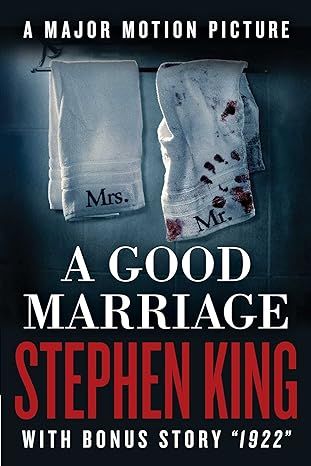
A Good Marriage
4.1
-
5,995
$4.99
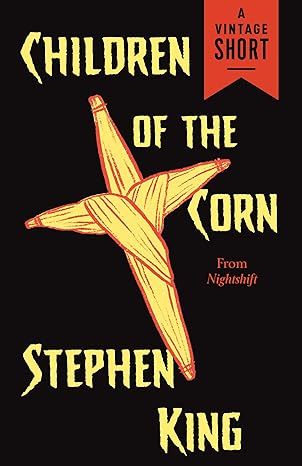
Children of the Corn (Kindle Single) (A Vintage Short)
4.3
-
1,084
$0.99
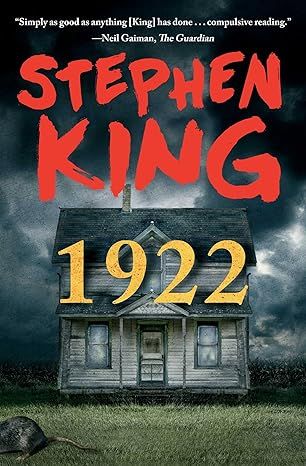
1922
4.6
-
6,082
$7.99

UR
4.3
-
6,140
$3.99
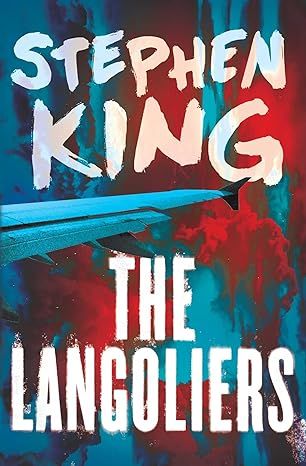
The Langoliers
4.6
-
1,014
$6.49
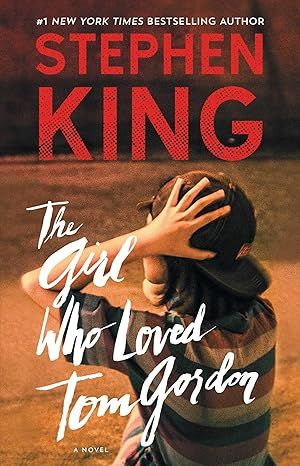
The Girl Who Loved Tom Gordon: A Novel
4.5
-
4,774
$1.17
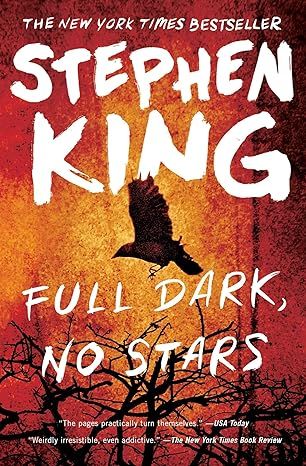
Full Dark, No Stars
4.6
-
6,762
$5.00

Gwendy's Button Box: A Novella (Gwendy's Button Box Trilogy Book 1)
4.5
-
21,335
$3.88
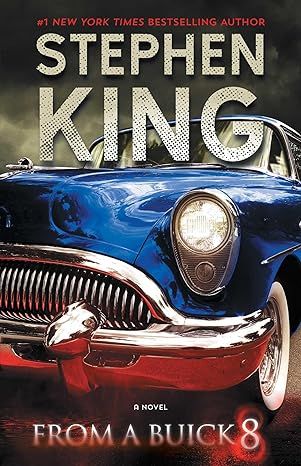
From a Buick 8: A Novel
4.3
-
2,174
$11.99
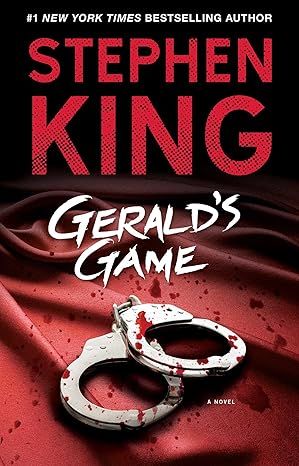
Gerald's Game
4.2
-
3,838
$1.97
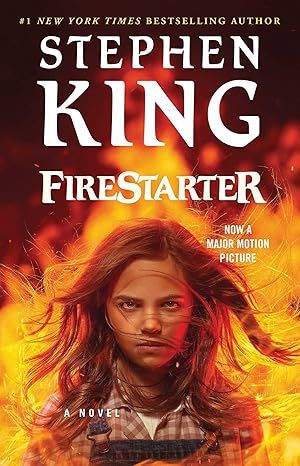
Firestarter
4.6
-
5,489
$9.99
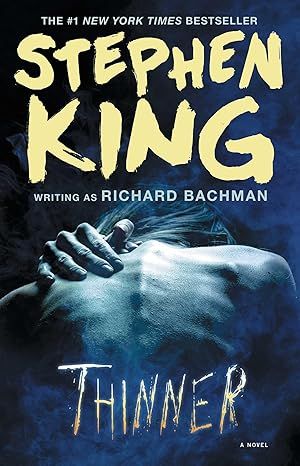
Thinner
4.5
-
3,107
$2.50
Similar Books
Best sellers
View all
The Tuscan Child
4.2
-
100,022
$8.39

The Thursday Murder Club: A Novel (A Thursday Murder Club Mystery)
4.3
-
155,575
$6.33

Sapiens: A Brief History of Humankind
4.6
-
140,302
$13.49

The Butterfly Garden (The Collector, 1)
4.3
-
88,556
$9.59

Things We Hide from the Light (Knockemout Series, 2)
4.4
-
94,890
$11.66

The Last Thing He Told Me: A Novel
4.3
-
154,085
$2.99

The Perfect Marriage: A Completely Gripping Psychological Suspense
4.3
-
143,196
$9.47

The Coworker
4.1
-
80,003
$13.48

First Lie Wins: A Novel (Random House Large Print)
4.3
-
54,062
$14.99

Mile High (Windy City Series Book 1)
4.4
-
59,745
$16.19

Layla
4.2
-
107,613
$8.99

The Locked Door
4.4
-
94,673
$8.53
